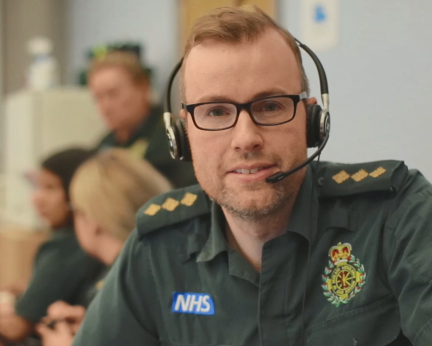I started work in the NHS at the age of 17 as a healthcare assistant at Bedford Hospital. I worked there for many years in various patient care roles before deciding to move to the ambulance service.
I started my technician course 14 years ago and worked up to paramedic whilst at Luton Ambulance Station.
I took on several managerial roles before moving into ambulance control as a clinical manager. Although it meant moving away from a patient-facing role which I’ve always loved, I felt that with this role I could have a greater effect on how we use our resources and ensure we treat more patients appropriately.
I have developed in many areas through the years. I’ve completed courses in mentorship and leadership, as well as keeping my paramedic registration up to date. I don’t class myself as an academic at all, so gaining the paramedic registration was my greatest career achievement.





